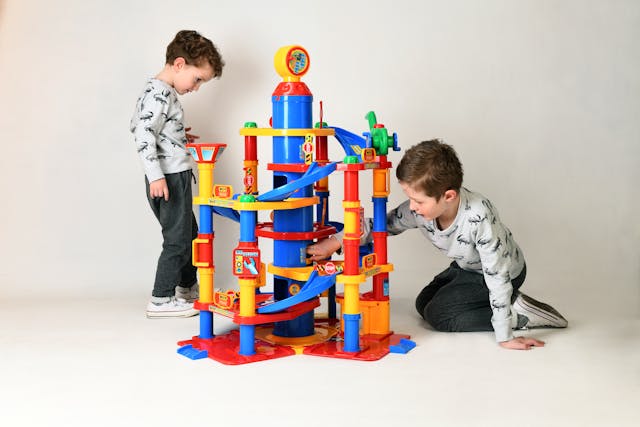In recent years, the Montessori method of education has gained popularity among parents and educators alike. This child-centered approach encourages independence, exploration, and hands-on learning. A significant part of the Montessori philosophy includes the use of high-quality, natural materials, particularly wooden toys. In this blog, we’ll explore the benefits of Montessori Wooden Toys and how they can enhance early childhood development.
1. Promotes Sensory Development
Montessori wooden toys are typically made from natural materials, which provide a rich sensory experience. Children are naturally curious, and engaging with different textures, weights, and colors helps develop their sensory awareness. Wooden toys offer tactile experiences that plastic toys often cannot match, making them more appealing and engaging for young children.
2. Encourages Open-Ended Play
One of the core principles of the Montessori approach is open-ended play, which allows children to explore and create freely without a predetermined outcome. Wooden toys are versatile and can be used in various ways, stimulating imaginative play. For example, a set of wooden blocks can become a tower, a house, or even a vehicle, allowing children to express their creativity and problem-solving skills.
3. Supports Fine Motor Skills Development
Many Montessori wooden toys are designed to help develop fine motor skills, which are essential for tasks such as writing, drawing, and self-care activities. Toys like stacking rings, shape sorters, and puzzles require children to grasp, manipulate, and balance, helping to strengthen their hand-eye coordination and dexterity. These skills are crucial for later academic success and daily life.
4. Fosters Cognitive Development
Montessori wooden toys often incorporate educational elements that promote cognitive development. For instance, puzzles help with spatial awareness and critical thinking, while sorting toys introduce concepts like categorization and counting. By engaging with these toys, children develop problem-solving abilities and enhance their understanding of the world around them.
5. Encourages Social Skills
When children play with Montessori wooden toys, they often do so in a collaborative manner. Whether they are building a fort with blocks or sharing a puzzle, these toys provide opportunities for social interaction. Through cooperative play, children learn essential social skills such as communication, teamwork, and conflict resolution.
6. Environmentally Friendly Choice
In an age where sustainability is increasingly important, Montessori wooden toys are an eco-friendly option. Made from responsibly sourced wood, these toys are biodegradable and free from harmful chemicals, making them safer for children and the environment. Choosing wooden toys over plastic options helps promote a more sustainable lifestyle and teaches children the importance of caring for the planet.
7. Timeless Appeal
Wooden toys have a classic, timeless appeal that many parents and educators appreciate. Unlike plastic toys that may break or become outdated, wooden toys are durable and can last for generations. They can also be passed down from siblings or even to future generations, creating a lasting connection between families and the toys that once inspired their creativity.
Conclusion
Montessori wooden toys are more than just playthings; they are valuable tools that support a child’s development across multiple domains. By providing sensory experiences, fostering open-ended play, and encouraging skill development, these toys play a crucial role in early childhood education. As you explore options for your child’s playtime, consider incorporating Montessori wooden toys into their collection. Not only will you be investing in their development, but you’ll also be choosing toys that are environmentally friendly and built to last. Happy playing!
